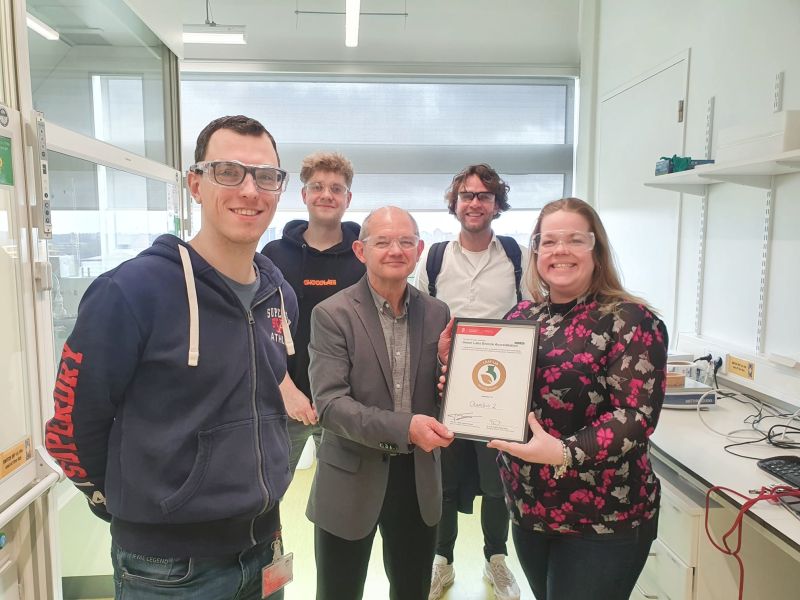Over the years, we have consistently explored ways to enhance the environmental friendliness of our laboratories. This has included using air reflux condensers instead of water, substituting all oil baths with heating blocks, promoting chemical sharing, transitioning to electronic lab journals to streamline experimentation processes and eliminate the need for paper journals to be stored for ten years, digitally labeling all homemade compounds in connection with their corresponding experiments, and engaging in discussions with suppliers regarding the packaging materials used for our chemicals.
However, in the past year, there has been a heightened focus on sustainability within our labs. Questions such as “How green are we?” and “What can we do?” started to gain traction. As a result, various subgroups emerged, engaging in brainstorming sessions, and eventually formulating concrete plans.
One significant initiative was the freezer challenge, whereby almost all of the -80 degrees Celsius freezers in our buildings were adjusted to -70 degrees Celsius, resulting in a remarkable 35% reduction in energy consumption. Additionally, the LEAF project, aimed at fostering general laboratory awareness and sustainability, began implementing changes throughout our labs. Consequently, our lab manager, Paulien Nauw, joined the sustainability team to visit different groups within our institute, fostering green ideas, and providing information about sustainable options. Just last week, we held our first subgroup meeting to further discuss how we can reduce our plastic waste stream. We are eager to explore possibilities such as reusing falcon tubes, gloves, pipette tips, and syringes, and implementing additional changes within our labs.

Today, we were honored to receive the first sustainability bronze award from LEAF by UCL for our labs. This award was handed to us by Joost Frenken, the dean of the Faculty of Science and Engineering. Moving forward, we strive to achieve the silver award as we continue our journey towards creating more sustainable laboratories.

